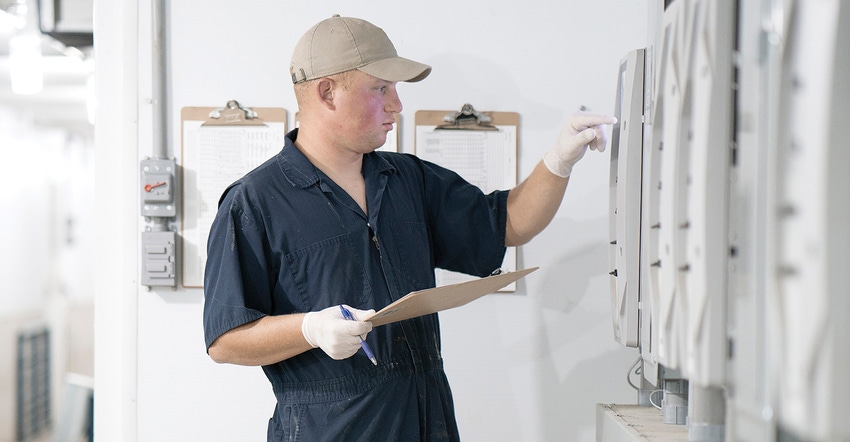March 8, 2018

Farmers fulfill nearly all executive roles on their operations: chief executive officer, chief financial officer and HR manager, just to name a few. While the majority of farmers may consider themselves business managers, many may not think of their role includes an entrepreneur.
However, in the ever-changing economy and agricultural landscape, farmers are challenged to find new solutions and adjust on nearly a day-to-day basis. Even if you are a sixth-generation farmer, chances are you aren’t doing things exactly the same way as you were five years ago.
This constant evolution is what is at the heart of entrepreneurship. Whether you are a first-year farmer or are on the same land your great-grandfather farmed, you are more entrepreneurial than you may believe.
Amy Wilkinson, founder and CEO of Ingenuity, lecturer at Stanford Graduate School of Business, author of The Creator’s Code: The Six Essential Skills of Extraordinary Entrepreneurs and speaker at the Farm Credit Mid-America 2017 Insights Conference, spent five years studying and interviewing some of the most well-known entrepreneurs to understand what makes them tick and what has made them successful. Below is the list of six skills she identified:
Skill #1: Find the gap.
Entrepreneurs are always on the lookout for opportunities that others aren’t taking advantage of or aren’t seeing. Amy says this is done one of three ways: as a sunbird, as an architect or as an integrator.
A sunbird, like the species it’s named after, takes an idea that’s working elsewhere and transplants it into another arena. An architect solves a problem from the ground up. Finally, an integrator brings together concepts and ideas that haven’t been linked before.
Skill #2: Drive for daylight.
Being a business owner takes immense focus, and there are a lot of thoughts that can distract you on your journey: What your neighbor is doing, what your family thinks and your past failures are just a few.
As Wilkinson explains, when NASCAR drivers are on the racetrack, they keep their eyes forward. They don’t look in the rearview mirror or to the side. Instead, they keep their thoughts and focus forward, toward the horizon. Farmers should always look toward where they want to go.
Skill #3: Fly the OODA-loop.
OODA is originally a fighter pilot mantra that stands for observe, orient, decide and act. Instead of ruminating over endless options, the goal is to make quick decisions that change the business or the competitive landscape. The OODA-loop is the constant iteration of this concept. Making decisions quickly means you are pivoting and iterating as needed to keep up with the changing demands of your business.
Skill #4: Fail wisely.
Large, devastating mistakes can be avoided by strategically choosing small failures that the business can accommodate. Farmers are constantly assessing what type of risk their operations can and cannot take on; this skill is no different.
An example of failing wisely may be doing small tests — like planting just a few rows of an experimental crop — that minimize the overall impact if they don’t go as planned. The goal should be to learn what works and what does not.
Skill #5: Network minds.
Though farmers are well-versed in many components of their operation, nobody can be an expert on everything. Multifaceted businesses like farms need the brainpower of individuals with diverse skills. Many farmers do this already by hiring an agronomist, sending their children to college for animal science or working with a financial lender.
Bringing in a group of experts on a variety of subjects will help build on ideas for your operation and create more robust problem-solving approaches.
Skill #6: Gift small goods.
Finally, Wilkinson outlines how sharing information and opening opportunities can help pay dividends down the road. Kindness may not seem like a skill that can help build success, but it strengthens relationships and fosters a strong community that will ultimately support your business. For farmers, gifting small goods can be joining a mentorship program to help young farmers in the next state or helping a family member learn a new skill on the operation.
As every farmer knows, running a successful operation means pivoting to keep up with constant changes in agriculture. No matter what the size or age of your operation is, developing these six skills can help set up your farm for long-term success.
For more on these six skills, get a copy of Amy Wilkinson’s book, The Creator’s Code: The Six Essential Skills of Extraordinary Entrepreneurs.
Source: Farm Credit Mid-America (http://bit.ly/SixSkillsFarmers)
You May Also Like




